The World Trade Organization warned that a spike in trade restrictions by major nations is threatening to hold back the global economy.

Trade coverage on imports among Group of 20 countries — including tariffs, import bans and new customs procedures — topped $336 billion between October and May, the organization said in a report Monday. That’s the second-highest reading, after the prior period’s record $481 billion. The figure doesn’t include the actions under consideration or threatened by governments.
The finding “provides further evidence that the turbulence generated by current trade tensions is continuing, with trade flows being hit by new trade restrictions on a historically high level,” WTO Director-General Roberto Azevedo said in the report. “This will have consequences in increased uncertainty, lower investment and weaker trade growth.”
Escalating tariffs have fueled concerns that the months-long trade war between the U.S. and China could undermine a pickup in the global economy. The International Monetary Fund has cut its 2019 global outlook to the slowest pace since the financial crisis, citing trade tensions as a risk to growth. Much could depend on whether President Donald Trump can de-escalate tensions during a meeting with Chinese leader Xi Jinping during the G-20 meeting this week in Japan.
“Several significant trade-restrictive measures which fall outside of the review period remain under consultation for potential later implementation. This further compounds the challenges faced by governments, businesses and consumers in the current global economic environment,” the WTO report noted.
The heightened tensions have thrown global goods exchange into turmoil as companies struggle to adjust their supply chains, stockpile items ahead of new sanctions, and rethink expansion plans. The uncertainty has hit the U.S. economy, with the manufacturing and trade-reliant sectors weakening.
There were 20 new trade-restrictive measures imposed in the latest period, fewer than recent months but the scale was much broader, the WTO said. The G-20 economies also introduced 29 new steps to facilitate trade, according to the report.
Source: Bloomberg, WTO
By Rt Hon Nicky Morgan, MP and Rt Hon Greg Hands, MP, Co-Chairs of the Prosperity UK Alternative Arrangement Commission
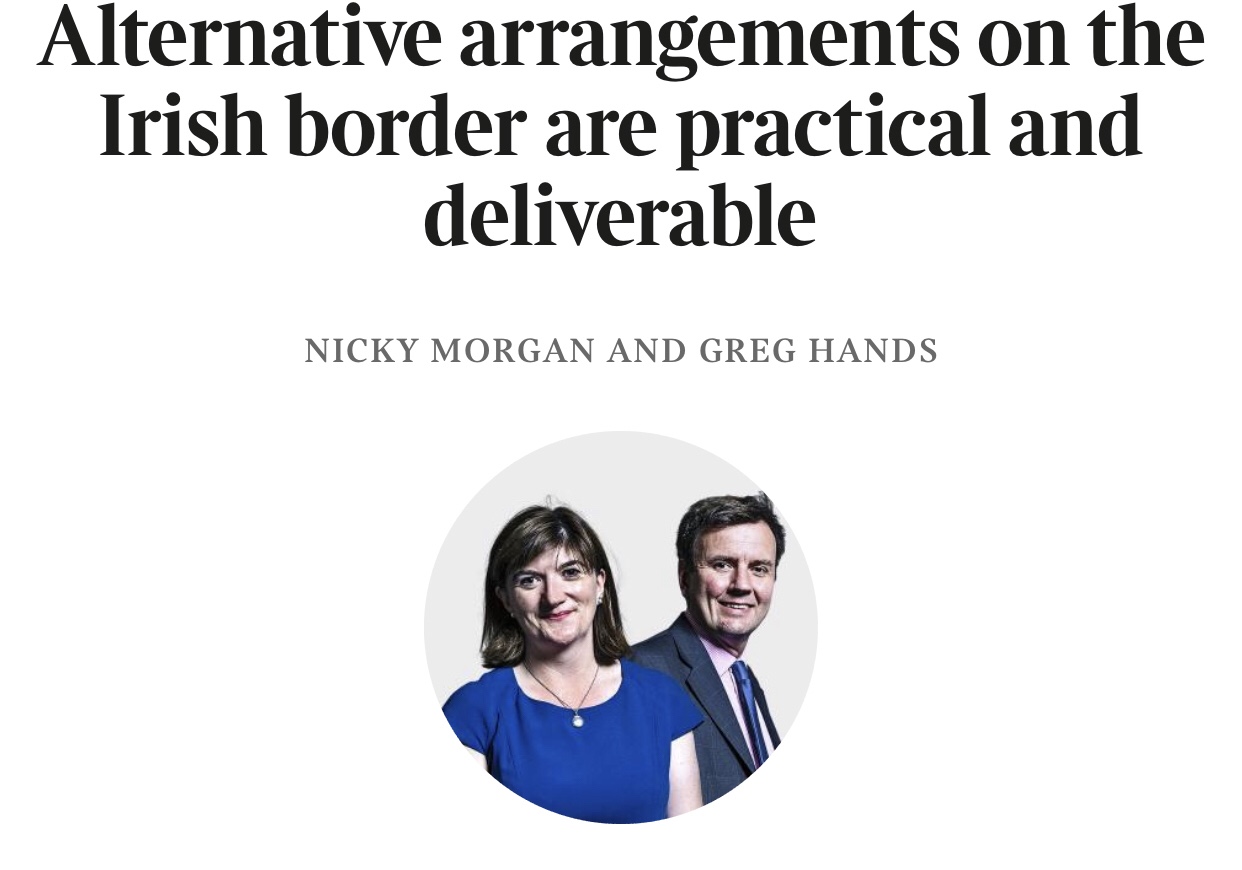
Finding a solution to the Irish border issue, which protects and upholds the Belfast / Good Friday Agreement, avoids a “hard border” on the island of Ireland, respects legitimate Irish and EU concerns, but which avoids the UK ever entering the so-called Backstop, is critical to clearing the Brexit impasse. Today, we believe finding such a solution has taken a substantial step forward.
As co-chairs of the Prosperity UK Alternative Arrangements Commission, an independent cross-party group set up to find practical solutions to, and opportunities from, Brexit, we are delighted to have published today our interim report for practical, workable Alternative Arrangements for the Irish border.
The report, produced by a panel of 23 technical experts, comprising border and customs experts, practitioners and lawyers with detailed knowledge of international trade, business and community relationships has engaged with stakeholders across the island of Ireland.
Its aim has been to secure solutions that protect and uphold the Belfast / Good Friday Agreement and that deliver solutions compatible with any of the Brexit outcomes, including working within the boundaries of the Withdrawal Agreement and related instruments.
Our Commission’s objective, from the outset, was to develop detailed proposals to avoid physical infrastructure at the border via, “consideration of comprehensive customs cooperation arrangements, facilitative arrangements and technologies,” as described in The Strasbourg declaration, March 2019.
For example, the report suggests multi-tiered trusted trader schemes, so customs processes take place at the point of departure and arrival, special economic zones in border areas, and exemptions for the very smallest companies below the VAT threshold.
As the report demonstrates, there already exist processes and technical solutions to many of the issues. The suggestion by some critics that Alternative Arrangements are some sort of “high-tech unicorn” is therefore ludicrous. While we should always be open to innovation, these solutions can be implemented within three years, with some measures introduced much sooner, subject to political agreement, ensuring the backstop is not triggered, or if it is, there is a clear route map out of it.
As we continue to seek a way out of the Brexit deadlock, it is worth remembering that there was one Brexit solution that did pass in the House of Commons – namely the Brady Amendment – that called for Alternative Arrangements without being specific. The work of the Commission has taken that amendment and turned it into practical, workable solutions, which will enable the UK to pursue its own independent trade and regulatory policy after Brexit, a key benefit of the Brexit process.
We believe this report has established viable and practical solutions, which can be turned into a draft Alternative Arrangements Protocol and can be reflected in the Withdrawal Agreement. Failing that, the work and the draft protocol could be utilised for any other Brexit outcome.
We would therefore encourage our colleagues in all parties to read these interim recommendations, to share their feedback prior to publication of the final report – to include the text of the Draft Protocol – at the end of July, in order that we can reach a Parliamentary consensus, renew discussions with the EU and finally deliver Brexit.
Today we had a consultative conference in London where we presented the report on Alternative Arrangements for ths Irish border.
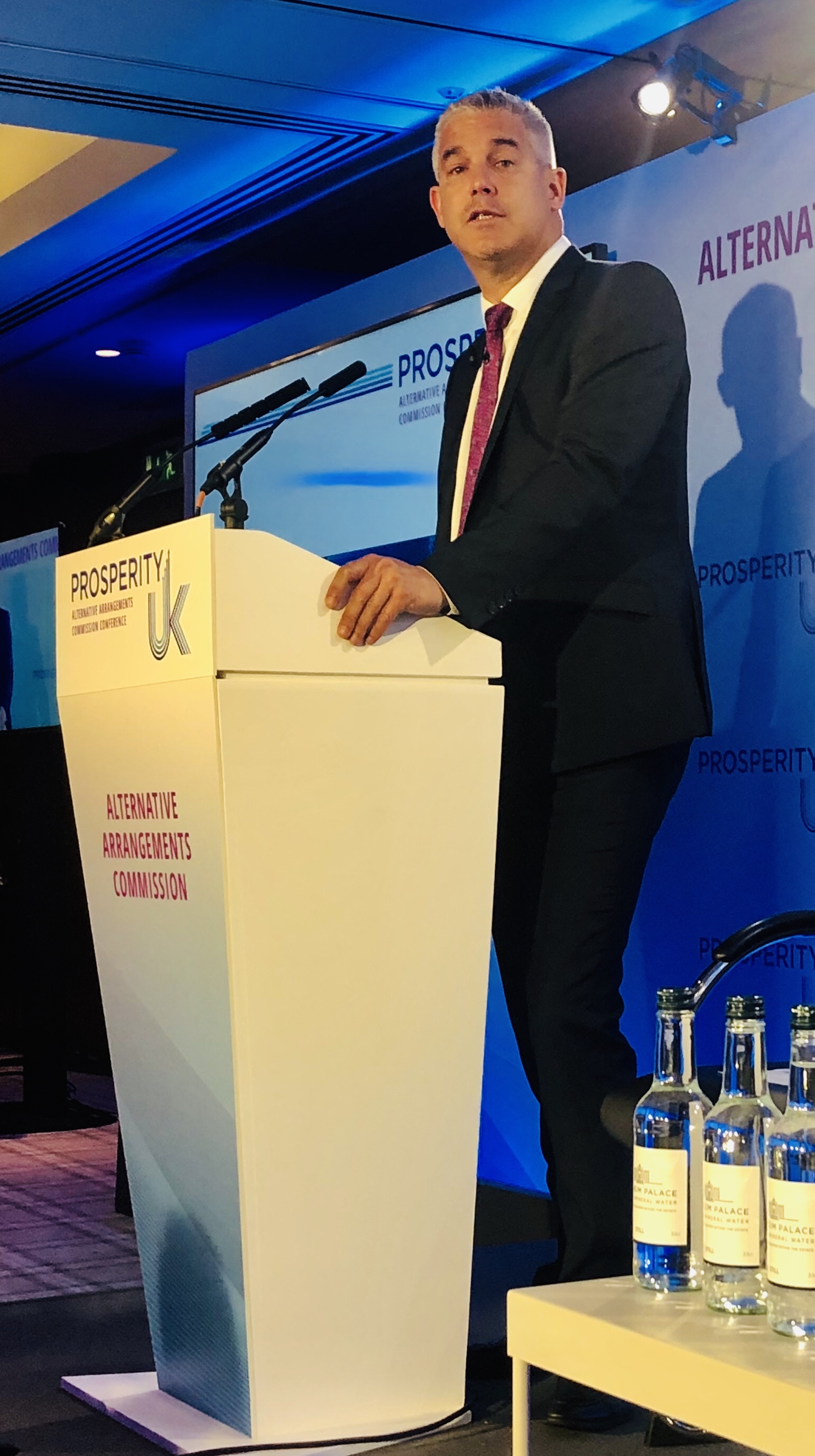
Rt Hon Stephen Barclay MP, Secretary of State, Exiting the European Union – delivering the Key Note Address.
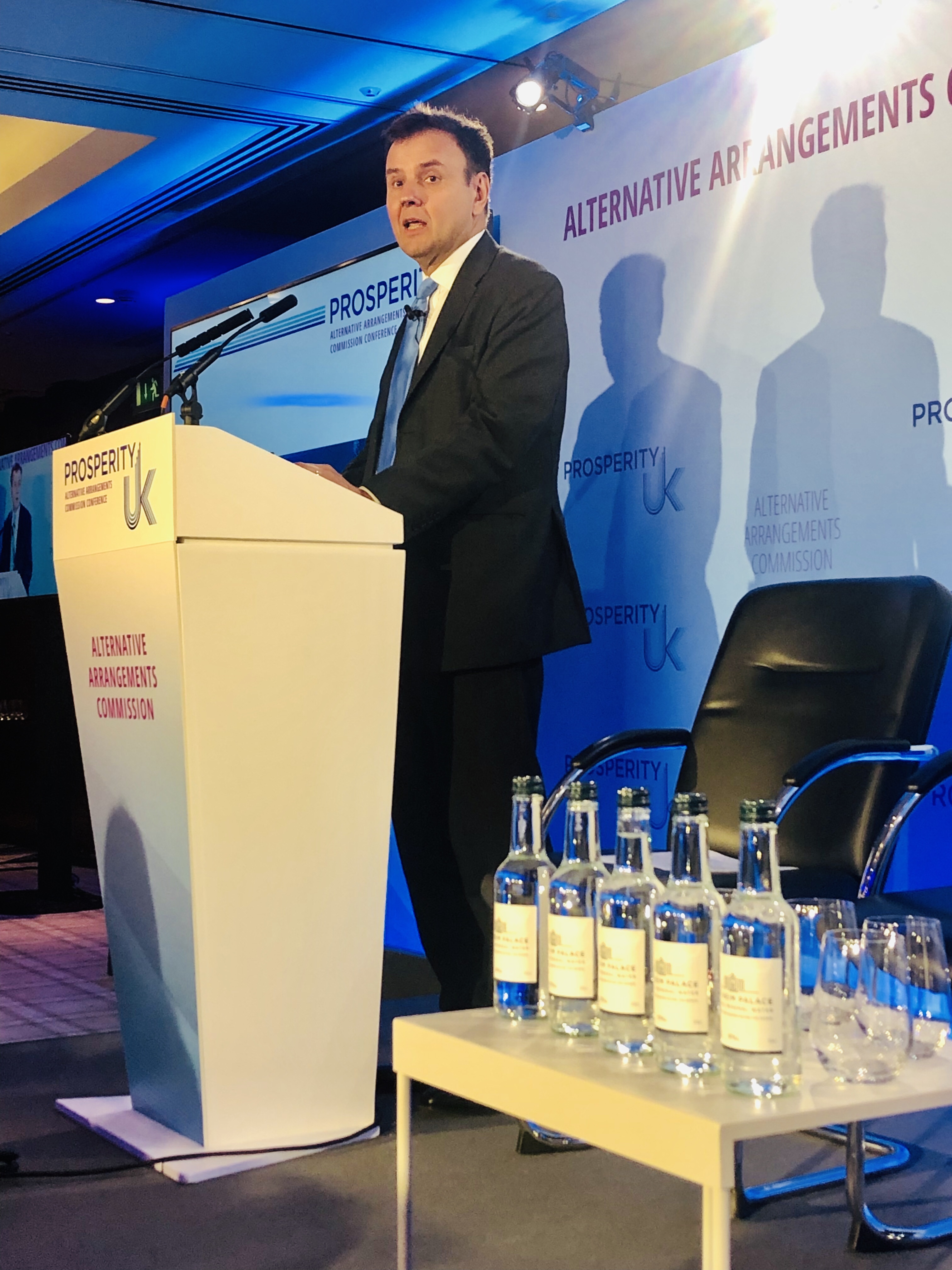
RT Hon Greg Hands MP, Co-Chair of the Prosperity UK Alternative Arrangements Commission opening remarks.
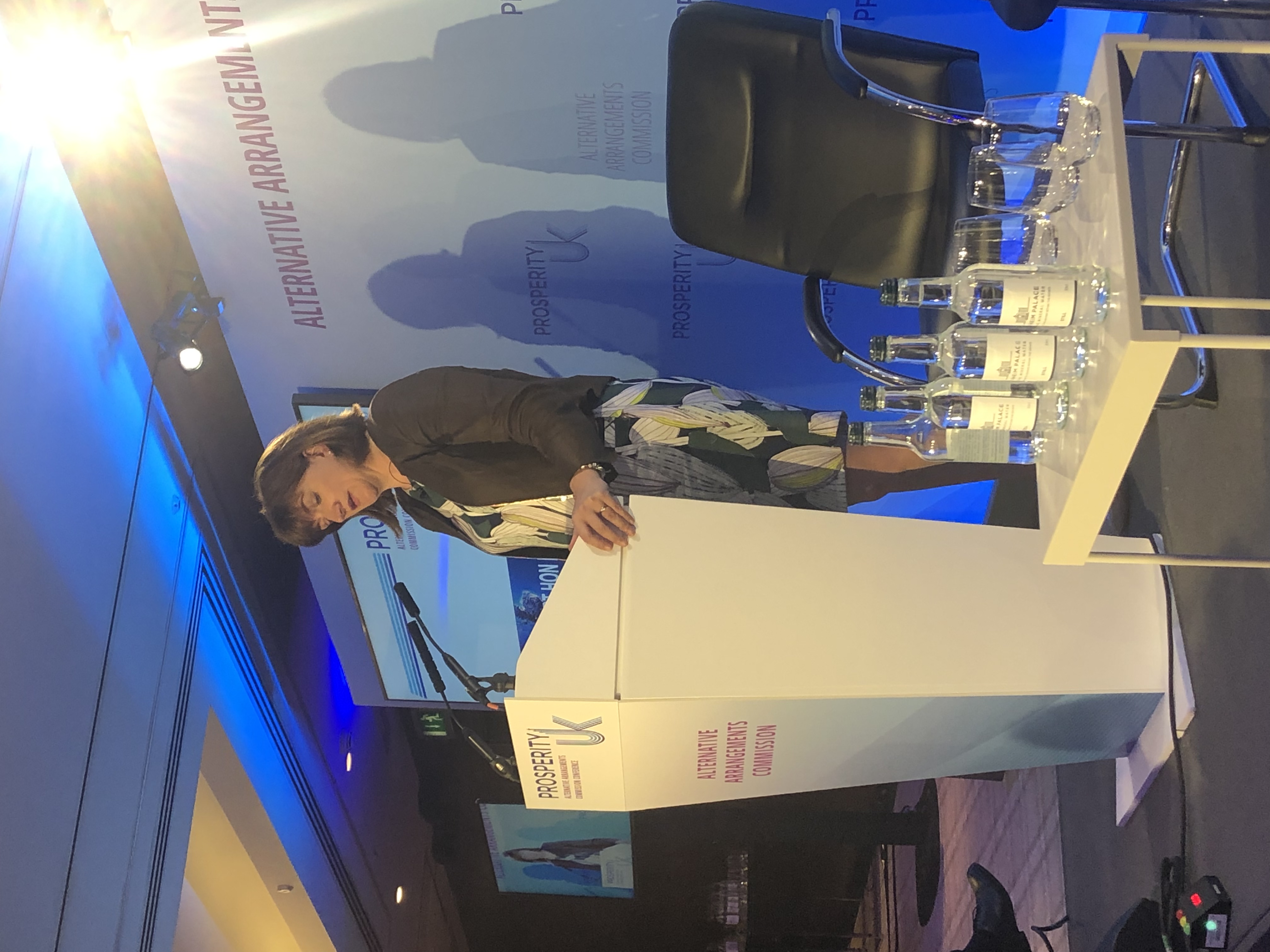
RT Hon Nicky Morgan MP, Co-Chair Prosperty UK Alternative Arrangements Commission, making her end-remarks at the successful conference.
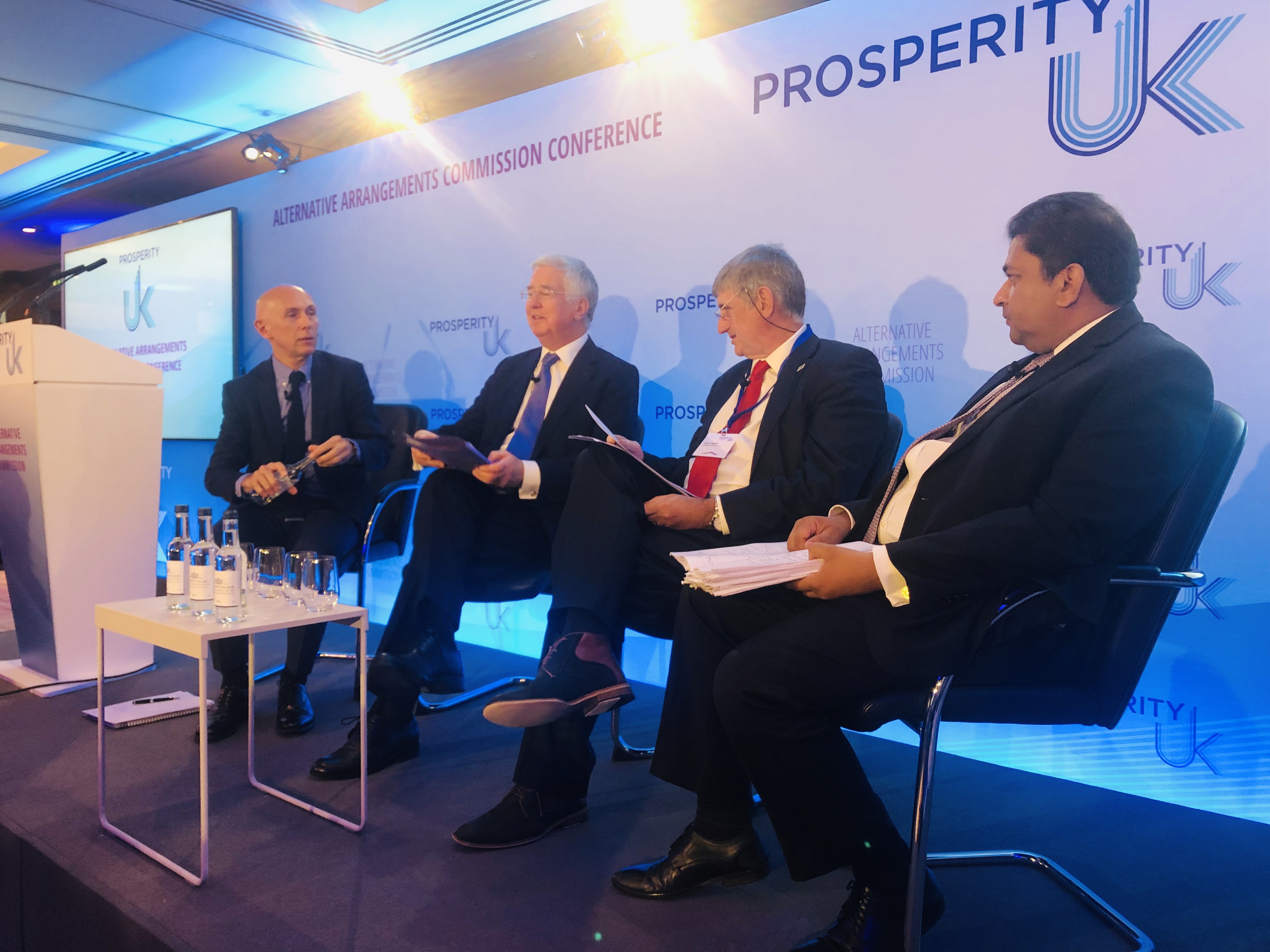
A panel on how to make the proposals in the interim report operational.
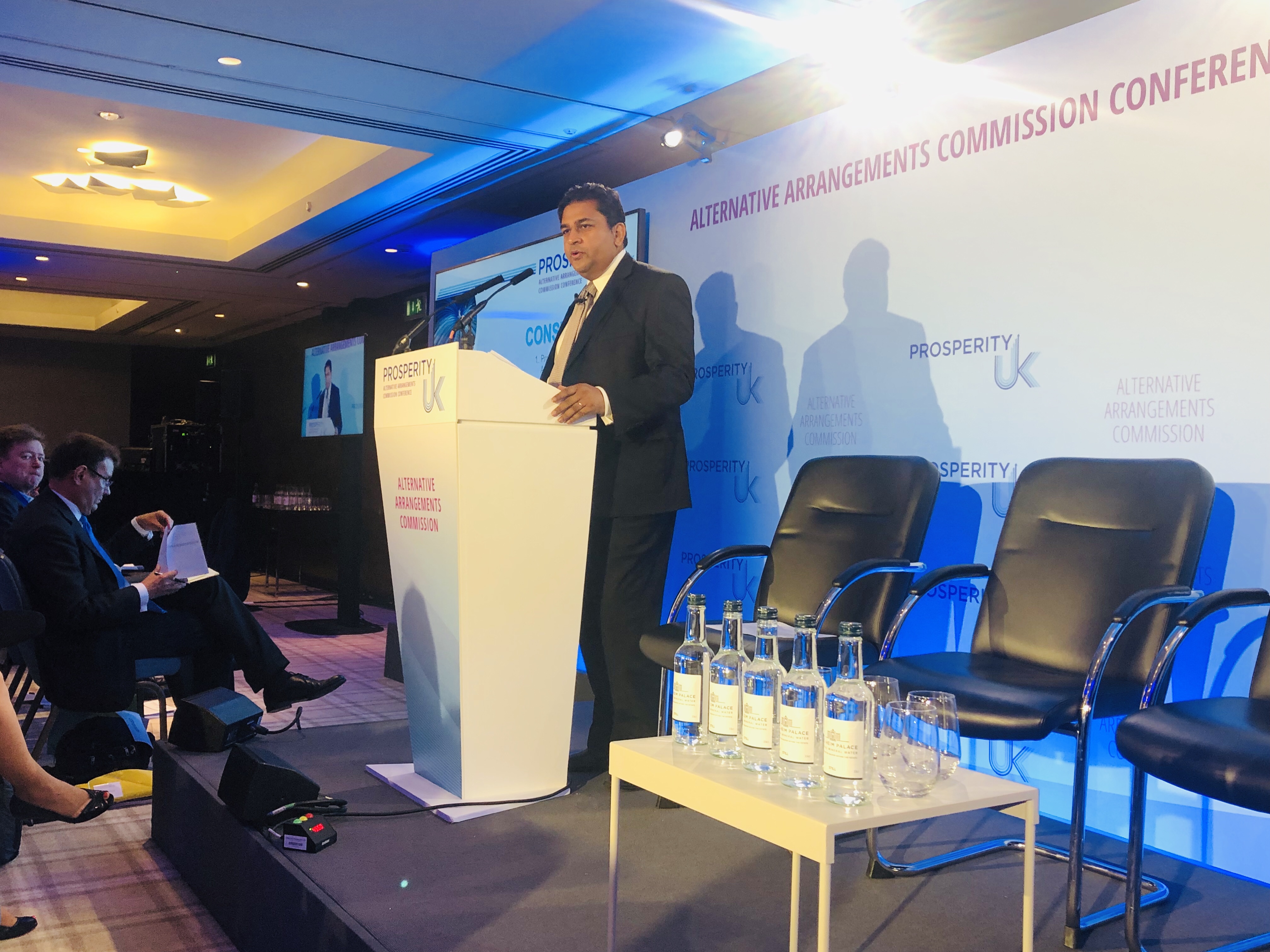
The Head of the AA Technical Panel, Sjanker Singham, presenting the findings in the report.
I think this a very good interim report showing that it is possible to deliver Alternative Arrangements in a reasonable time.






You must be logged in to post a comment.